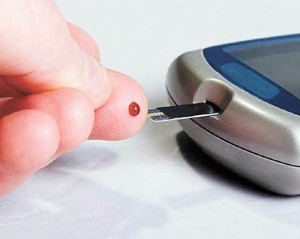 Dear Camille,
Dear Camille,
When I visited my doctor today to review my lab work, I was told that I am pre-diabetic! I’m not surprised; my mother, my aunt, and my oldest brother are diabetic. My doctor said he would place me on medication if I don’t try to correct it with diet and exercise. Can you help me!
— Alicia
Dear Alicia,
In answer to your question Alicia, yes, we can help you! We have numerous patients who have been able to lower their high glucose numbers naturally with nutrition and exercise. It is very important to begin with understanding the disease and why it is so important to take the diagnosis seriously.
What is Diabetes?
According to The American Diabetes Association, diabetes is a group of diseases characterized by high blood glucose levels in the blood resulting from defects in the body’s ability to produce and/or use insulin.
There are three types of diabetes; Type 1, Type 2, and Gestational diabetes. Type-1 diabetes is usually diagnosed in children and young adults and is known as juvenile diabetes resulting from the body’s inability to produce insulin. Only 5%-10% of people with diabetes have this form of the disease. The management of type1 diabetes includes monitoring blood glucose levels and administering insulin daily for life.
In type 2 diabetes, the body does not use insulin properly. It is called insulin resistance meaning the pancreas is not making enough insulin to keep blood sugar levels normal and/or the cells do not respond to insulin. Being overweight or obese, poor nutrition, and high blood pressure are risk factors that lead to type 2 diabetes.
What is pre-diabetes?
Pre-diabetes indicates risk of type 2 diabetes and heart disease. In pre-diabetes, the blood sugar level is higher than normal, but not high enough to be classified as full-blown diabetes. Diabetes is defined as having a fasting plasma blood glucose level of 126 mg/dl or greater on two separate occasions. If you have a casual blood glucose taken at any time that is equal to or greater than 200 mg/dl and the second test shows a high blood glucose level, then you have diabetes.
What is gestational diabetes?
Gestational diabetes is diagnosed in women who have never had diabetes before, but have high blood sugar glucose levels during pregnancy. The cause maybe due to hormones created during pregnancy that block the action of insulin in the body. Gestational diabetes is treated by adhering to a healthy diet, implementing exercise and in some cases, taking medication.
What causes diabetes?
Diabetes is caused by both genetics and environmental factors. In type1diabetes the immune system fights attacks and destroys its own insulin-producing cells in the pancreas resulting in little or no insulin production. In type 2 diabetes, not enough insulin is produced and/or the cells in the body are not responding to the insulin signals resulting in more sugar left in the blood. Environmental causes include eating the wrong foods, being overweight or obese, and being physically inactive. According to Medical News Today, drinking just one can of (non-diet) soda per day can raise the risk of developing diabetes by 22%.
Who is at risk for diabetes?
The risk of developing type1 diabetes are not quite known. Researchers have found the following new possibilities:
• A Family History. Anyone with a parent or sibling with type 1 diabetes has an increased risk.
• Genetics. The presence of certain genes indicates an increased risk of developing type1 diabetes.
• Geography. People living furthest away from the equator tend to develop the condition. People living in Finland and Sardinia have the highest incidence of type 1- diabetes.
• Viral Exposure. Exposure to certain viruses may trigger auto-immune destruction.
The following are risk factors for type 2 diabetes:
• Being overweight and/or obese.
• Poor diet regardless of weight.
• Physical inactivity.
• A relative who has/had diabetes.
• Certain ethnic and racial groups. Hispanic/Latino, Middle Eastern, African, non-Hispanic African Americans, South Asian descent, American Indian, Alaska Natives, Pacific Islanders. also have a higher risk of developing the disease.
• Men with low testosterone levels.
• Having high blood pressure.
• Having low HDL (good cholesterol) and/or high triglycerides.
• Women who had gestational diabetes or who have had a baby weighing 9 pounds or more at birth.
Is it possible to reverse diabetes?
According to new statistics just out from the Centers for Disease Control and Prevention, type 2 can be reversed in some cases. Making changes such as improving diet, losing excess weight, getting physically active by adding exercise, and cutting back on alcohol (which is really sugar) significantly reduces glucose numbers to the normal range. Once reversed, a healthy lifestyle must be life-long or the diabetes will come back. Type1 diabetes cannot be reversed because the pancreas is not producing insulin at all.
What are the choices?
This year, I am highlighting two patients who are participants in our weight management program and are on the road toward reversing diabetes. Ben Hutley, who has been a diabetic for years, made a decision one day that would change his life. “I knew I had to do something and when I was told by Camille that I could possibly reverse my diabetes or at least reduce the amount of medication I take, I took it seriously.”
I placed Ben was on an individually designed, doctor supervised nutrition plan. Ben did not like to exercise, but he knew he had to do it, so he joined and local gym and now exercise is part of his daily regime.
Ben lost 35 pounds previously before starting our program and was going through a plateau. As a result of a customized diet and knowing healthy strategies to increase weight loss, Ben’s doctor, Dr. David Neuman eliminated one of his medications for diabetes. Once the medication was eliminated, the weight began to fly off!! On our program and with our new scientific technology device that allows us to focus on losing fat and not lean body mass, we know Ben’s exact nutritional needs making weight loss much easier.
People who are diabetic understand that weight loss can be difficult due to the medications they have to take to control the glucose level in the blood. Certain diabetic medications tend to prevent weight loss and/or makes losing weight very difficult. However, if a patient stays true to course and does not give up, the body begins to heal enough for medications to be reduced. Once they are reduced, faster weight loss can occur. Ben told me, “I’m not turning back. When I come in your office Camille, and I see the pair of jeans you have tacked to the wall showing patients that you’ve been where they are, I imagine my jeans alongside yours and I am encouraged.”
Another patient who is experiencing exponential success is Paul Goldburg. When Paul came to the program, he was determined to change his health. He followed the program completely and added exercise to his daily health regime. The results have paid off! Paul has lost 65 pounds to date and will soon reach his goal by years end.
Reasons to lose weight now!
Losing weight can have major benefits. Whether the goal is to reduce medication or completely eliminate medication, to avoid taking medication in the first place, or to simply improve overall health and wellbeing, the choice is up to you. Just losing 10% of your body weight can improve your health by reducing the risk or reversing the following:
• High blood pressure
• High cholesterol
• Type 2 diabetes
• Coronary heart disease
• Stroke
• Gastroesophageal reflux disease (GERD)
• Osteoarthritis
• Sleep apnea
• Certain cancers, including endometrial, breast and colon cancer
Feel better and improve Quality of Life
Improved health is only a small part of the picture. All of us want to look and feel our best. Successfully losing weight can play a huge role in the way we see ourselves, and how we present ourselves to others. Many of our weight loss patients experience:
• More energy and vitality
• New-found pride in appearance
• Improved self-image
• A new outlook on life
• Improvement in intimate relationships
The Cost
The price of weight loss programs vary, can be very expensive, and many are not medically supervised. Weight loss programs can be very expensive depending on the program. At Personal Physician Care, our medically supervised weight management program is the most affordable science based program available. Our mission is to help as many of our patients as possible improve their health and quality of life. Weight Management coaching is also plays a key role in long term success for in order to be successful, patient’s are given strategies and tools to stay motivated and to make lifestyle changes conductive to weight loss.
Diabetes is a degenerative disease, meaning, the condition worsens as time goes on. The value placed on the improvement of health and quality of life must outweigh the temporary monetary inconvenience.
The Next Step
When it comes to diabetes, there are only two choices; the continuation of living with the diagnosis and the degenerative nature of the disease or making the decision to do something about it. When I was diagnosed with high blood pressure I did not want to take medication. My life changed when I made the decision to do something about it. I detail my story in my book titled, Fat Chick to Cover Model, where at the end of my weight loss journey I was featured on the cover of People Magazine in May of 2007, interviewed by Robin Roberts of Good Morning America and highlighted on Entertainment Tonight for losing 100 pounds. I had to make eating healthy and exercise a part of my everyday life. It was easy once I gave up the struggle.
The current and future patients at Personal Physician Care have a team of professionals to help them succeed; their primary care doctor, their nurse, our caring staff, and their weight loss coach and nutrition specialist.
Don’t let an upsetting diagnosis of pre-diabetes or diabetes go unchallenged. Make this year your best year ever by taking action today!
Personal Physician
561-498-5660 ext 346
www.ppcare.net
Check Also
Trusted Homecare Agency: Serving Veterans with Free Supplemental Home Healthcare
When it comes to healthcare, veterans deserve the best care possible. For veterans seeking in-home …
 South Florida Health and Wellness Magazine Health and Wellness Articles
South Florida Health and Wellness Magazine Health and Wellness Articles




